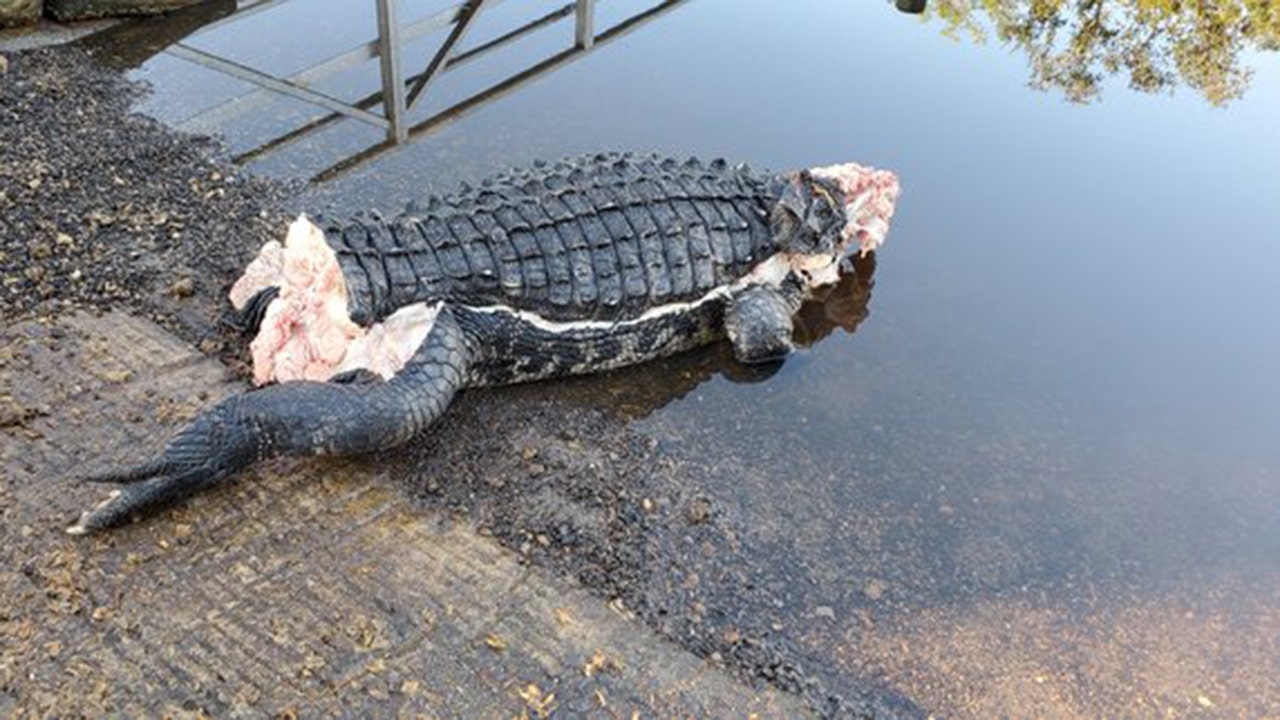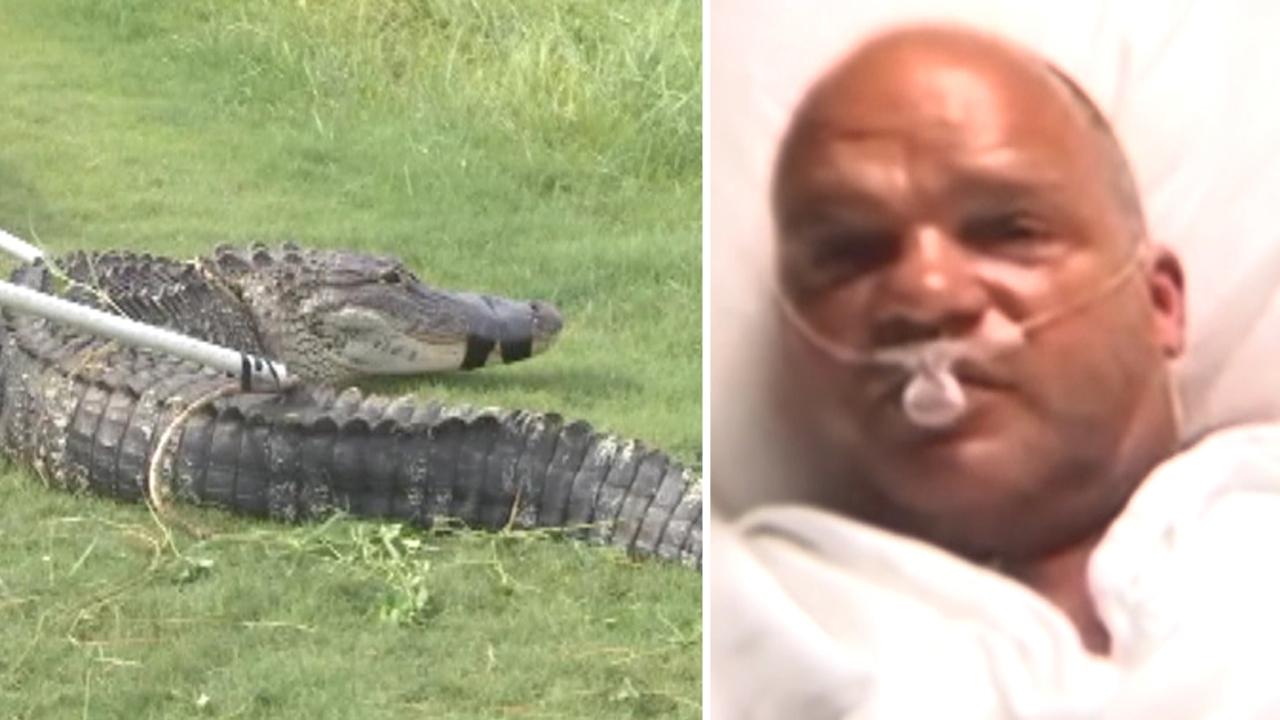Can You Kill An Alligator On Your Property In Louisiana?
Living in Louisiana comes with its unique set of challenges, and one of them is dealing with alligators. These reptiles are not just a part of the state's rich biodiversity but also a potential threat to residents, especially those living near water bodies. If you're wondering whether you can kill an alligator on your property in Louisiana, this article will provide you with all the information you need to know.
Encounters with alligators can be alarming, and knowing your rights and responsibilities is crucial. Louisiana has specific laws and regulations governing interactions with wildlife, including alligators. Understanding these laws ensures that you stay safe while also respecting the environment.
This article will explore the legal aspects of dealing with alligators, safety measures, and expert advice on managing encounters. Whether you're a homeowner or simply curious about wildlife management, this guide will equip you with the knowledge to handle alligator-related situations effectively.
Read also:Addison Vodka Real Name Unveiling The Life And Persona Behind The Scenes
Understanding Alligator Population in Louisiana
Overview of Alligator Presence in the State
Louisiana is home to a significant alligator population, with an estimated 2 million alligators inhabiting the state's swamps, marshes, and waterways. The American alligator (Alligator mississippiensis) is a keystone species in Louisiana's ecosystem, playing a vital role in maintaining the balance of aquatic environments.
While alligators are generally shy and avoid human contact, their presence near residential areas has increased due to urban expansion and habitat encroachment. This proximity raises concerns about safety and property damage, prompting many residents to seek clarity on their rights when it comes to dealing with these creatures.
Factors Contributing to Alligator Encounters
- Proximity to natural habitats: Homes located near water bodies are more likely to experience alligator encounters.
- Human activities: Feeding or disturbing alligators can make them more aggressive and less fearful of humans.
- Seasonal behavior: Alligator activity increases during warmer months, especially during the breeding season.
Understanding these factors can help residents take preventive measures to minimize the risk of dangerous encounters.
Can You Kill an Alligator on Your Property in Louisiana?
Under Louisiana law, killing an alligator without proper authorization is illegal. The American alligator is a protected species under state and federal regulations, and unauthorized killing can result in severe penalties, including fines and imprisonment. However, there are specific circumstances where lethal action may be permitted, but only after obtaining the necessary permits.
The Louisiana Department of Wildlife and Fisheries (LDWF) regulates alligator management and provides guidelines for dealing with nuisance alligators. Residents are encouraged to report any alligator-related concerns to the LDWF before taking any action.
Legal Regulations Surrounding Alligator Management
State Laws on Alligator Hunting and Harvesting
Louisiana has a regulated alligator hunting season that allows licensed individuals to harvest alligators under specific conditions. The annual alligator season typically runs from late August to mid-September, and participants must adhere to strict quotas and guidelines.
Read also:Christine Lahti Net Worth A Comprehensive Look At Her Career Wealth And Achievements
Outside of the hunting season, killing an alligator without a permit is prohibited. The LDWF issues permits for nuisance alligator removal only in cases where the animal poses a direct threat to human safety or property.
Federal Protections for Alligators
The American alligator is protected under the Endangered Species Act (ESA) and the Convention on International Trade in Endangered Species (CITES). These protections ensure the species' survival while allowing sustainable use through regulated hunting and farming programs.
Violating federal protections can lead to severe legal consequences, emphasizing the importance of following established procedures when dealing with alligators.
Safety Measures for Dealing with Alligators
Preventive Measures to Minimize Encounters
- Keep a safe distance from alligators and avoid approaching them.
- Never feed or harass alligators, as this can make them more aggressive.
- Secure garbage cans and pet food to avoid attracting alligators.
- Supervise pets and children near water bodies.
Implementing these preventive measures can significantly reduce the likelihood of dangerous encounters with alligators.
What to Do During an Alligator Encounter
In the event of an alligator encounter, it's essential to remain calm and avoid provoking the animal. Slowly back away and avoid making sudden movements. If the alligator exhibits aggressive behavior or poses a threat, contact the LDWF immediately for assistance.
Nuisance Alligator Removal Process
Reporting Alligator Concerns
Residents who encounter nuisance alligators should report the situation to the LDWF's Wildlife Enforcement Division. The LDWF evaluates each case to determine whether the alligator poses a genuine threat and requires removal.
Upon verification, the LDWF may issue a permit to a licensed nuisance alligator hunter to safely remove the animal. Residents are prohibited from taking any independent action unless explicitly authorized by the LDWF.
Permit Requirements and Procedures
To obtain a nuisance alligator removal permit, residents must provide detailed information about the alligator's location, size, and behavior. The LDWF conducts a thorough assessment to ensure that the animal poses a legitimate threat before approving the permit.
Licensed hunters authorized by the LDWF are trained to handle alligator removals safely and humanely, ensuring compliance with state and federal regulations.
Environmental Impact of Alligator Management
Importance of Conservation Efforts
Conservation efforts play a crucial role in maintaining the balance of Louisiana's ecosystems. Alligators help control fish and rodent populations, contributing to healthier wetland environments. Regulated hunting and farming programs allow for sustainable use of alligator resources while preserving the species.
By following established guidelines and supporting conservation initiatives, residents can coexist with alligators while minimizing conflicts.
Long-Term Benefits of Responsible Management
Responsible alligator management benefits both humans and wildlife. It ensures the preservation of alligator populations while addressing concerns related to safety and property damage. Collaborative efforts between residents, wildlife agencies, and conservation organizations are essential for achieving this balance.
Expert Advice on Alligator Safety
Tips from Wildlife Experts
Wildlife experts recommend the following practices to enhance safety around alligators:
- Stay informed about alligator behavior and habitats.
- Follow local guidelines and regulations regarding alligator management.
- Report any unusual or aggressive alligator behavior to the LDWF promptly.
- Participate in community education programs to learn more about living safely with wildlife.
Education and awareness are key to reducing conflicts between humans and alligators.
Role of Education and Community Involvement
Community involvement in alligator management programs fosters a better understanding of the challenges and opportunities associated with coexisting with wildlife. Educational initiatives can empower residents to make informed decisions and take proactive steps to ensure their safety.
Conclusion
Dealing with alligators on your property in Louisiana requires a balanced approach that respects both human safety and wildlife conservation. While killing an alligator without proper authorization is illegal, residents can report nuisance alligators to the LDWF for assessment and potential removal. By following established guidelines and taking preventive measures, you can minimize the risk of dangerous encounters and contribute to the preservation of Louisiana's unique biodiversity.
We encourage you to share this article with others who may benefit from the information and leave a comment below if you have any questions or experiences to share. For more insights into wildlife management and safety tips, explore other articles on our website.
Table of Contents
- Understanding Alligator Population in Louisiana
- Can You Kill an Alligator on Your Property in Louisiana?
- Legal Regulations Surrounding Alligator Management
- Safety Measures for Dealing with Alligators
- Nuisance Alligator Removal Process
- Environmental Impact of Alligator Management
- Expert Advice on Alligator Safety
- Conclusion


